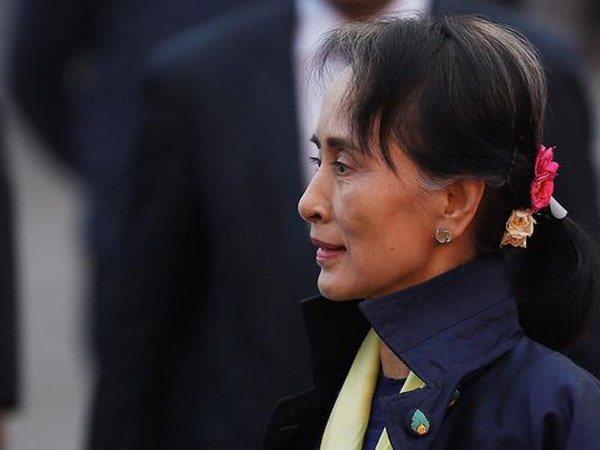Myanmar leader Aung San Suu Kyi has been stripped of the rare Freedom of Edinburgh award over her refusal to act on the Rohingya crisis — making this the seventh honour that she has lost since the violence erupted.
The long-celebrated Nobel Peace Prize winner was given the award in 2005 to honour her role in championing peace and democracy in Burma (now Myanmar), where she was living under house arrest. She was also given honorary citizenship in Canada in 2007 by the Harper government for standing up for freedom and democracy to her country.
But international criticism has mounted against Suu Kyi for failing to stop – or even speak out against – the violence against the Rohingya people in Myanmar that began in August last year, which has forced hundreds of thousands to flee to Bangladesh.
The UN High Commissioner for Human Rights called the violence committed by the Myanmar military against the Rohingya a “textbook example of ethnic cleansing.”
Cities in the United Kingdom, such as Oxford, Glasgow and Newcastle and now Edinburgh have all revoked Suu Kyi’s honorary awards as the leader’s international reputation has been tarnished over the crimes committed in Myanmar.
Canadian citizens have also urged Prime Minister Justin Trudeau to revoke Suu Kyi’s citizenship, but the federal government has refused to follow suit.
In a letter Trudeau wrote to Suu Kyi last year, Trudeau did condemn the atrocities being committed against Rohingya Muslims, saying it is with “disappointment and dismay that your fellow Canadians have witnessed your continuing silence in the face of the brutal oppression of Myanmar’s Rohingya Muslim people.”
Trudeau also outlined further steps he would like the Myanmar government and military to take, calling on the Myanmar security forces to end the violence and bring the perpetrators to justice.
However, the prime minister did not address the issue of stripping Suu Kyi of her honorary Canadian citizenship in the letter.
At the beginning of August, the Canadian Museum for Human Rights in Winnipeg removed Suu Kyi from a display and from the museum’s timeline of human rights defenders and milestones following criticism of her response to the allegations of human rights abuses against Rohingya Muslims.
Her portrait in a gallery of honorary Canadian citizens remains in the museum but has been dimmed. A sign was also placed in front to explain the current situation with the Rohingya people.
Before making the decision, a museum spokesperson said there were Rohingya people in Canada who felt “betrayed” when they saw the leader’s image depicted as a defender of human rights.
In March, the U.S. Holocaust museum also stripped the Myanmar leader of the Elie Weisel award, which was given to her in 2012.
Global News reached out to the Trudeau government for comment but did not hear back at the time of publication. Last year, Global Affairs did put out a statement about the Rohingya crisis.
“Canada is deeply concerned by today’s UNHCR report that over 123,000 refugees have fled Myanmar into Bangladesh since the beginning of violence last month,” the statement reads. “We call on the security forces to ensure the safety and protection of all civilians.”

